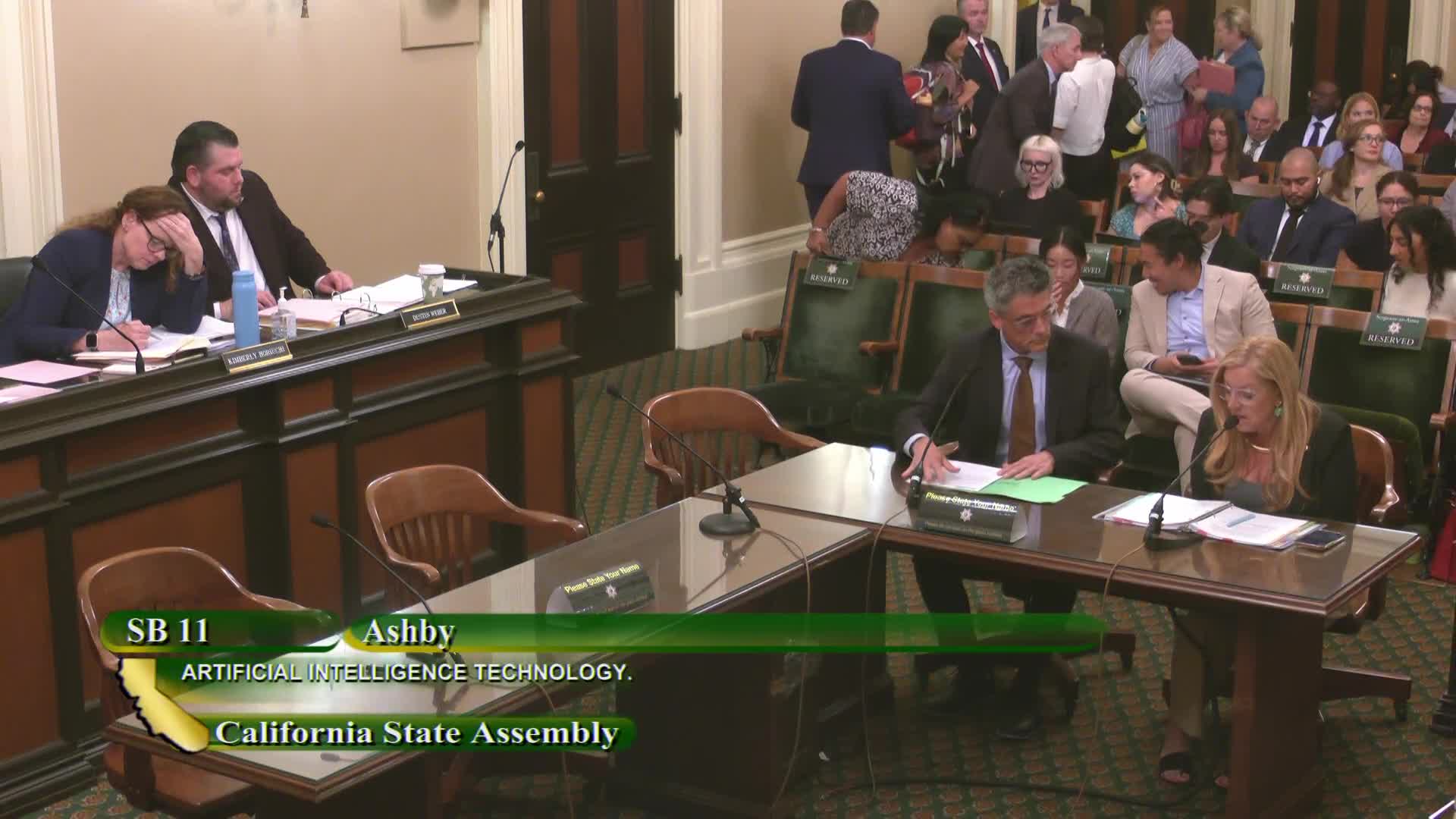California lawmakers introduce AI Abuse Protection Act to regulate AI misuse
July 01, 2025 | California State Assembly, House, Legislative, California
This article was created by AI summarizing key points discussed. AI makes mistakes, so for full details and context, please refer to the video of the full meeting. Please report any errors so we can fix them. Report an error »

California lawmakers are taking a significant step towards regulating artificial intelligence with the introduction of the AI Abuse Protection Act, also known as SB 11. This legislation aims to establish a comprehensive legal framework to address the misuse of AI technologies, particularly concerning voice, image, and video cloning.
During a recent meeting of the Assembly Public Safety Committee, the urgency of this bill was underscored by its sponsor, who highlighted the alarming rise of deep fakes and nonconsensual images that have left individuals, especially women and young girls, vulnerable to exploitation and identity theft. Notably, the bill addresses the troubling statistic that 95% of deep fake content found online is explicit and often features women without their consent.
SB 11 proposes several key measures to combat these issues. It clarifies the definition of likeness to include AI-generated content, mandates consumer warnings on AI software, establishes penalties for misuse, and prevents tampering with AI-generated evidence in court. These provisions aim to provide essential protections for victims of AI abuse, filling a critical gap in California's current legal landscape.
Steve Wimmer, an AI developer and representative from the Transparency Coalition, voiced strong support for the bill, emphasizing its role in safeguarding individuals from the harmful impacts of AI-generated digital replicas. He noted that California's leadership in this area is crucial, especially in light of recent federal attempts to halt state-level AI legislation.
The passage of SB 11 is seen as a pivotal move not only for protecting Californians but also for setting a precedent for thoughtful regulation of AI technologies nationwide. As the committee deliberates, the outcome of this legislation could significantly shape the future of AI governance in California and beyond.
During a recent meeting of the Assembly Public Safety Committee, the urgency of this bill was underscored by its sponsor, who highlighted the alarming rise of deep fakes and nonconsensual images that have left individuals, especially women and young girls, vulnerable to exploitation and identity theft. Notably, the bill addresses the troubling statistic that 95% of deep fake content found online is explicit and often features women without their consent.
SB 11 proposes several key measures to combat these issues. It clarifies the definition of likeness to include AI-generated content, mandates consumer warnings on AI software, establishes penalties for misuse, and prevents tampering with AI-generated evidence in court. These provisions aim to provide essential protections for victims of AI abuse, filling a critical gap in California's current legal landscape.
Steve Wimmer, an AI developer and representative from the Transparency Coalition, voiced strong support for the bill, emphasizing its role in safeguarding individuals from the harmful impacts of AI-generated digital replicas. He noted that California's leadership in this area is crucial, especially in light of recent federal attempts to halt state-level AI legislation.
The passage of SB 11 is seen as a pivotal move not only for protecting Californians but also for setting a precedent for thoughtful regulation of AI technologies nationwide. As the committee deliberates, the outcome of this legislation could significantly shape the future of AI governance in California and beyond.
View full meeting
This article is based on a recent meeting—watch the full video and explore the complete transcript for deeper insights into the discussion.
View full meeting
